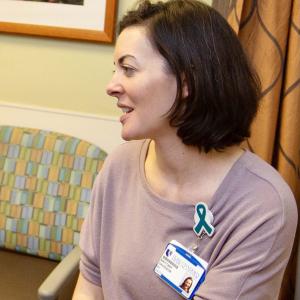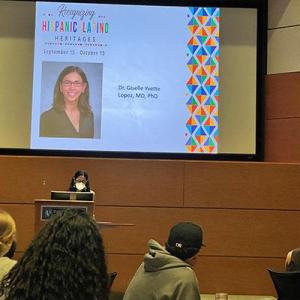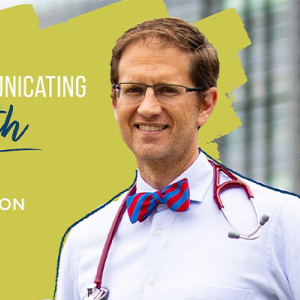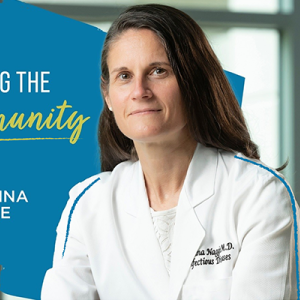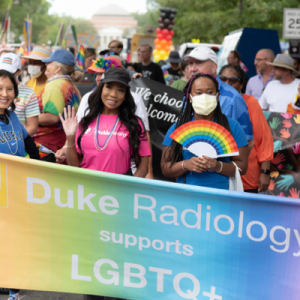Dzirasa, Randles win the NIH’s prestigious Pioneer Award
Two Duke professors are among just eight scholars nationwide who have been awarded prestigious Pioneer Awards this year from the National Institutes of Health (NIH).
Lee Zou Named New Chair of Department of Pharmacology and Cancer Biology
Lee Zou, PhD, has been named the new chair of the Department of Pharmacology and Cancer Biology. He will begin his new role on Feb. 1, 2023.
Looking for an On-Ramp: Delicate Conversations in Terminal Ovarian Cancer
Brittany Davidson, MD, associate professor in the Department of OB-GYN, Division of Gynecologic Oncology, and the director of gynecologic oncology fellowships, shares how she and her colleagues are approaching goal planning, palliative care, and end-of-life ovarian cancer care.
Raphael Valdivia Named Chair of Immunology
Raphael Valdivia, PhD, has been named chair of the Department of Immunology, effective Oct. 1, 2022. Dr. Valdivia is the Nanaline H.
Celebrating Hispanic Heritage Month: Dr. López Finds Community in Pathology
Giselle Y. López, MD, PhD, was a keynote speaker, along with Gabriela Maradiaga Panayotti, MD, for the inaugural Duke Latino Medical Student Association (LMSA) Hispanic Heritage Month Gala on Sept. 15th at Duke’s Trent Semans Center for Health Education. She has Puerto Rican and Cuban heritage, and spoke about her experiences as a Latina medical professional, emphasizing the importance of community in Latin American cultures.
How Long Older Adults Will Live Comes Down to 17 Often Surprising Factors
A new model to predict the life expectancy of older people relies less on their specific disease diagnoses and more on factors such as the ability to grocery shop, the amount of certain small cholesterol particles circulating in their blood, and whether they never or only occasionally smoked.
Duke Continues to Take Extraordinary Measures to Treat Pompe Disease
Families affected by Pompe disease gathered at Duke recently to celebrate the remarkable advances generated by Duke researchers that have helped people with the disease live longer and enjoy a better quality of life. Genetic specialists at Duke developed the only FDA-approved treatment for Pompe disease and continue to work on treatments to give even more patients and families a brighter future.
Communicating Truth: Dr. Cameron Wolfe
Dr. Wolfe emerged as a key figure at Duke during the pandemic, patiently explaining the threat to the public while helping shape both the hospital’s efforts to save patients’ lives and the university’s efforts to keep students safe.
Engaging the Community: Dr. Susanna Naggie
Dr. Susanna Naggie and her colleagues at Duke University School of Medicine knew that COVID-19 was disproportionately impacting communities of color through higher rates of infection, severity of disease and associated adverse outcomes. Determined to be part of the solution, they set out to understand and address these disparities in real time.
Duke Health Community Comes Together to Celebrate Durham Pride
The city of Durham held Pride: Durham, NC, on Sept. 24, with many from Duke Health coming together as a community to celebrate inclusion, community, family, pride, and activism.


